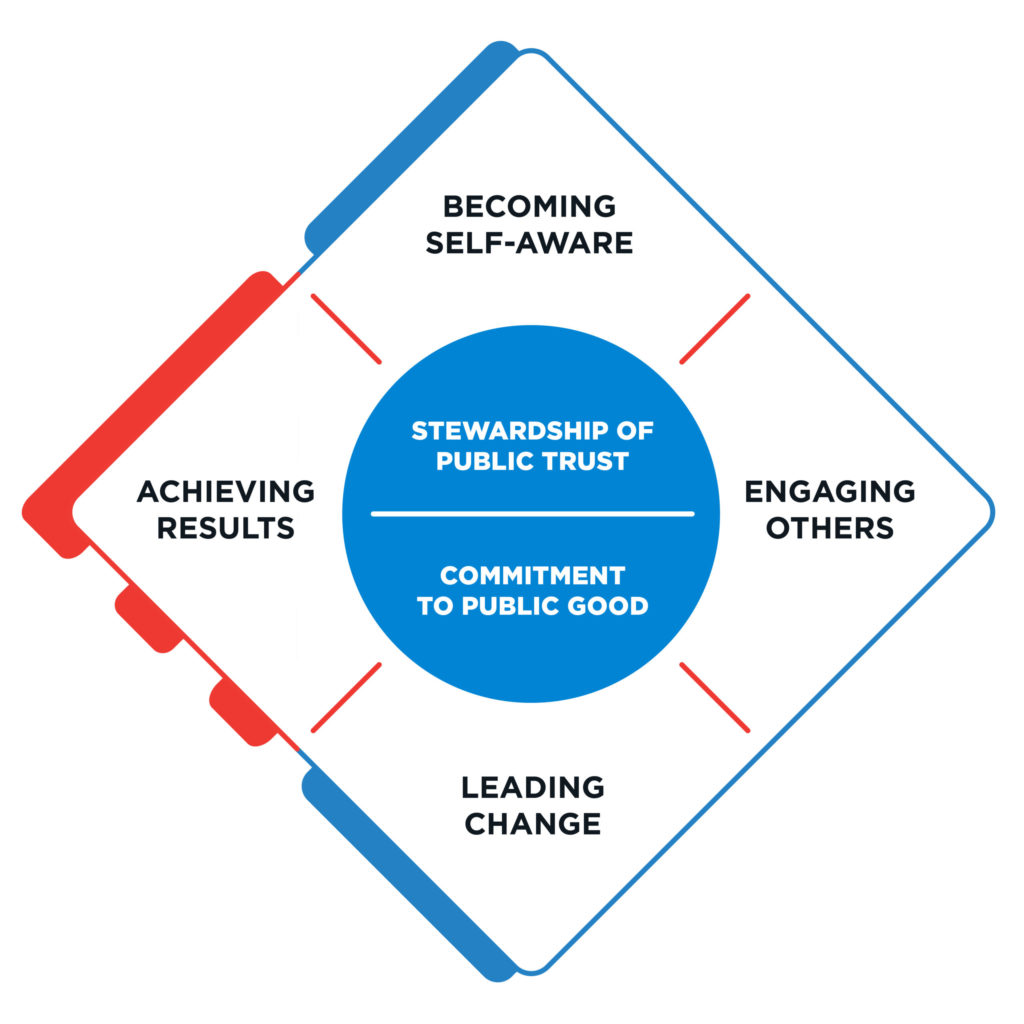You don’t need a top title to be a leader. Here are 4 ways to build influence.
Strong leaders do not always have high-level titles. In fact, some of our most historic leaders—from Malala Yousafzai and Edward Verne Roberts to Harriet Tubman—exhibited inspirational leadership without them. The actions of these individuals remind us that anyone can lead because, as renowned author John C. Maxwell notes, “leadership is influence.”
The Partnership’s Public Service Leadership Model offers four core competencies that will help you lead no matter your level or role: becoming self-aware, engaging others, leading change and achieving results.

Regardless of where you are on an organizational chart, whether you consider yourself an introvert or extrovert, or whether you are new to the workforce or decades in, you can make a difference. Here’s how:
Make time for introspection.
According to Doug Conant, an internationally renowned business leader and Partnership board member, leadership is an “inside out craft,” so starting with self-awareness is critical. Understand your morals and values, as well as how they shape your personal development and your interaction with others.
It is also important to examine the ways in which your actions may not align with your values so you can make course corrections. For example, if respect matters to you, notice how often you interrupt others. If you value learning, notice if you are making assumptions rather than seeking clarification. Be intentional to connect your values to your actions. You will strengthen your leadership skills and influence workplace culture for the better.
Be a connector.
Create a stakeholder map for a project or program you are working on, and take note of the people you don’t work with often. Initiate conversations on priorities, challenges and where you each affect areas that matter to the other party. By identifying how to collaborate effectively, you can influence the way others engage with that project and with other aspects of your agency’s work.
Solve problems.
Don’t just identify problems; develop ideas to solve them. When you encounter a sticking point in a process, find ways to streamline it without losing quality. Even if you are not the ultimate decision-maker, you can influence the way decisions are made by providing recommendations or bringing a unique perspective. Your innovation and creativity can shape outcomes, so be bold with sharing your ideas.
Be a systems thinker.
Get to know how things work, not just in your immediate area but in your broader department or agency. Build your expertise; learn about other ways the agency goes about its business beyond the projects you work on regularly. Explore. Manage up, down and sideways by seeking out and sharing useful information and insights. Curiosity and credibility can help you develop insights and influence others to maximize their impact and improve the way the agency does its work.
Agency missions matter to the health of our country and to the public good. Your agency needs you to lead whether you have a high-level title or not. Take advantage of the opportunities to share your ideas. Take action to address inefficiencies. Strengthen working relationships. You can influence outcomes and shape the way others experience the workplace. Be a leader today!
Learn more about the Partnership’s Public Service Leadership Institute®, including its many training opportunities.
